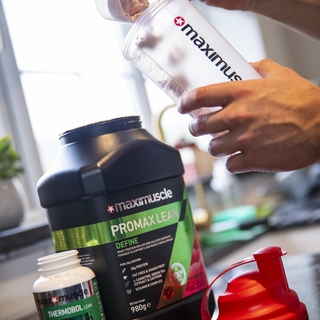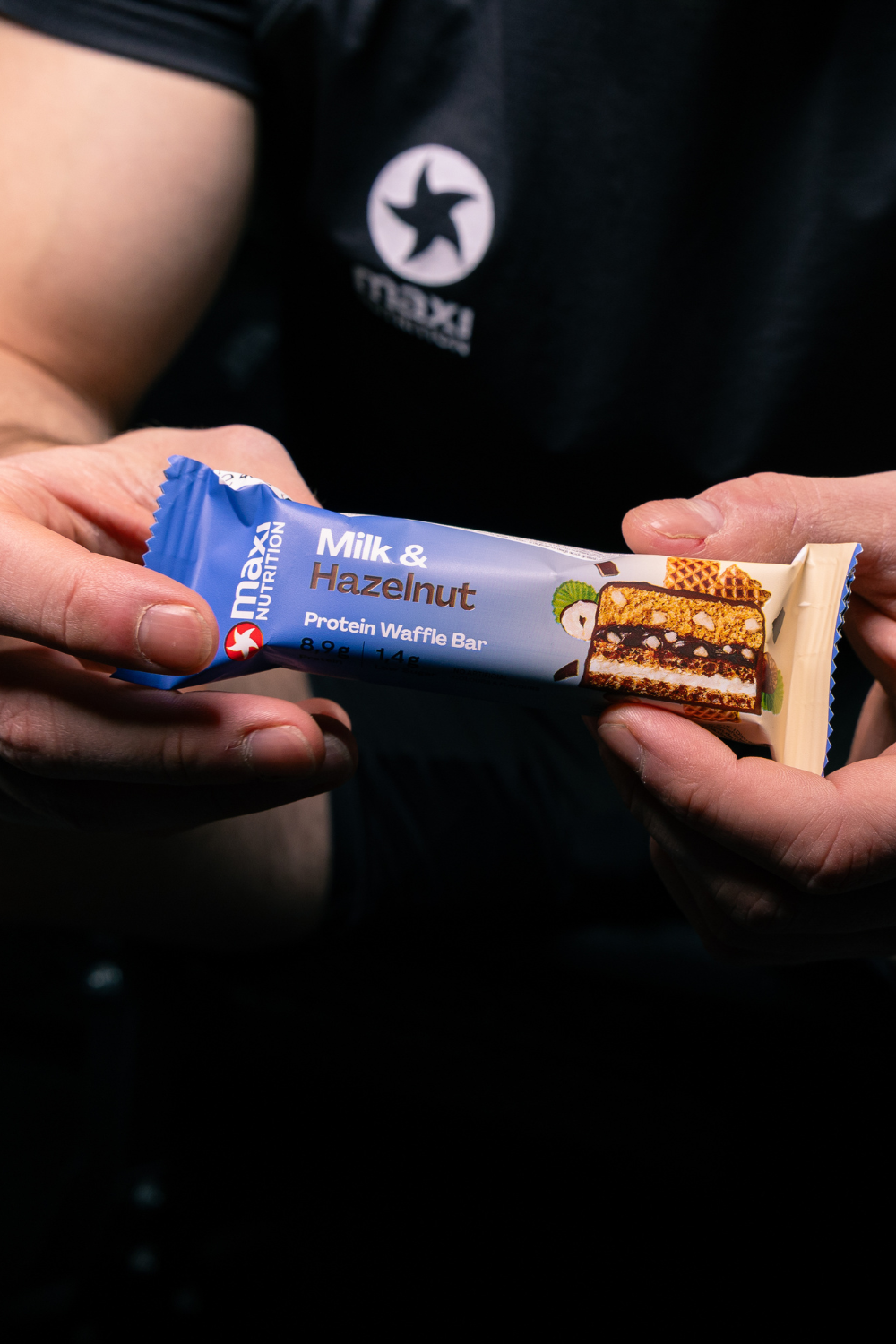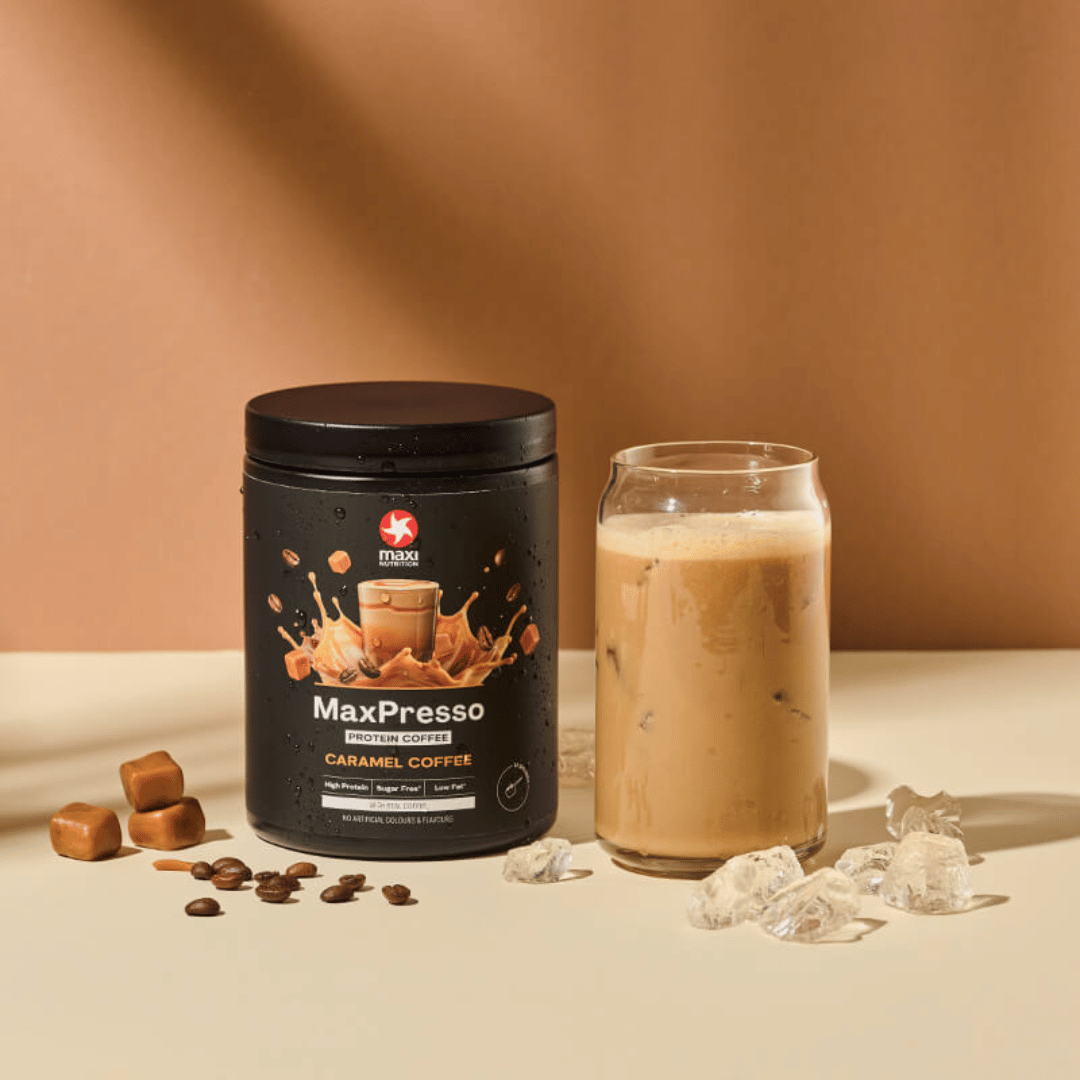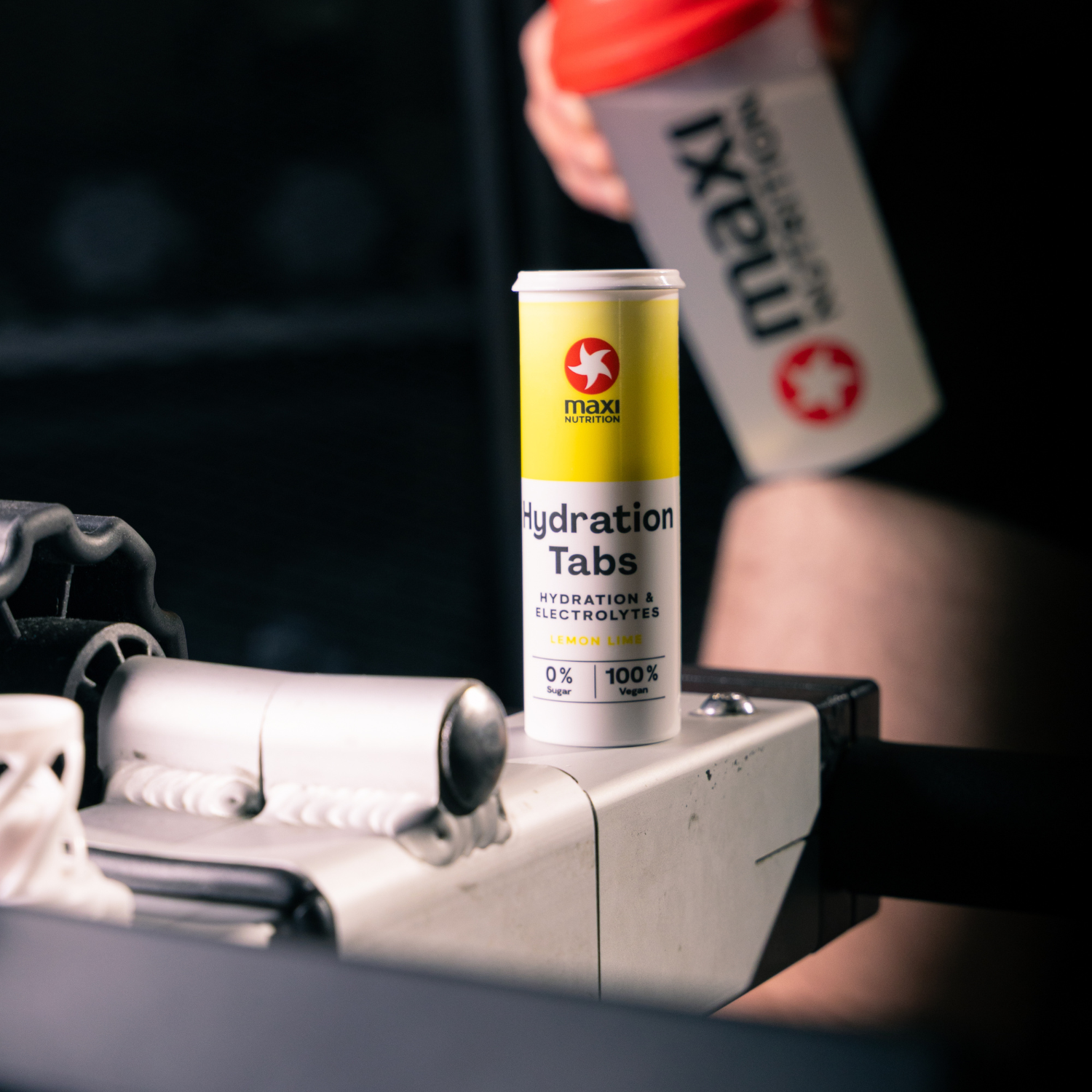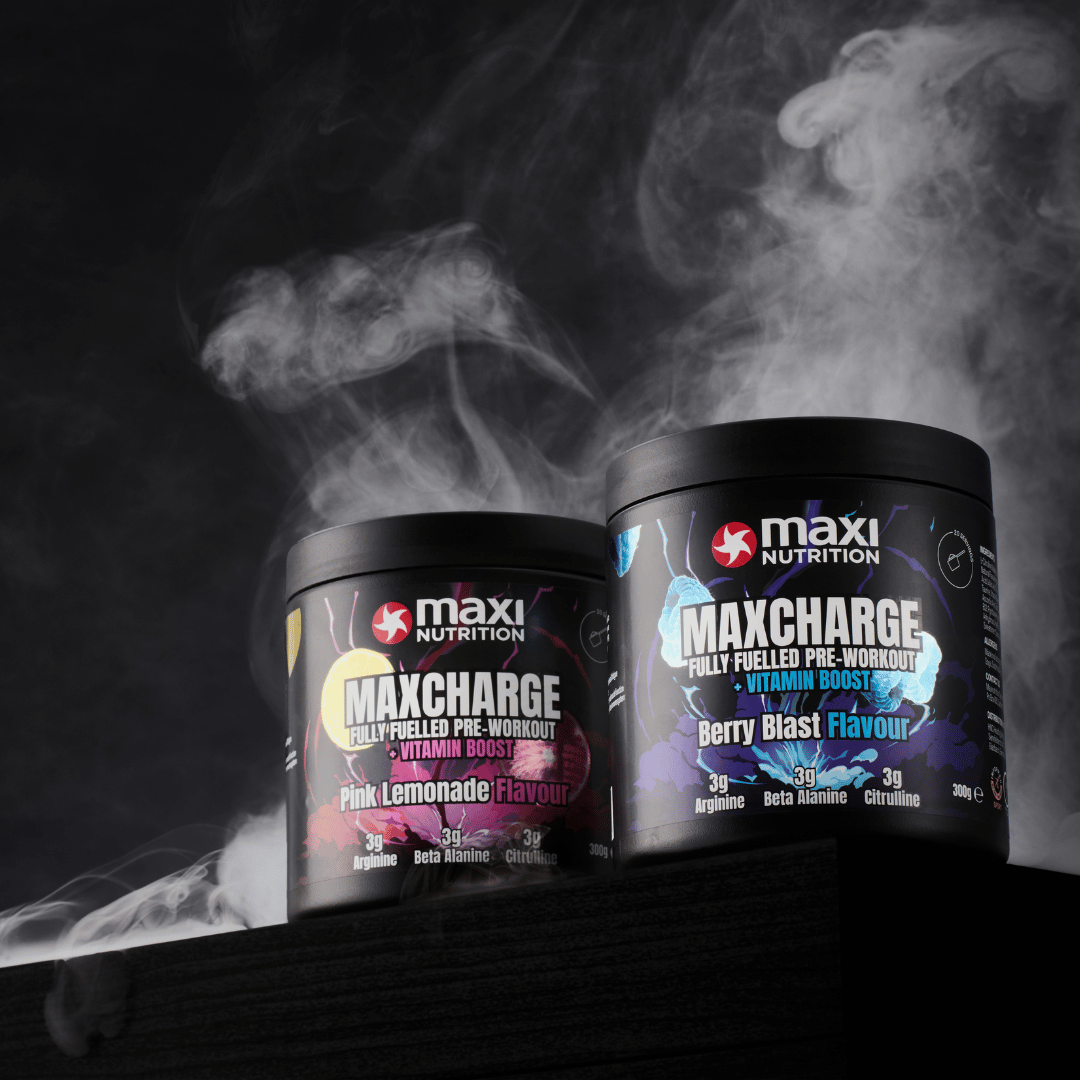Could fasting be the answer?
No input, no output. Is it really that simple? In a word, No. Unlike a car, the body stores multiple sources of energy, a bit like a 2nd, 3rd and reserve fuel tank. These different sources of energy are utilised at different levels and at different times. But just like a car, energy is what makes the motor work and without it, you are going nowhere. I’m Gareth Nicholas, Head Nutritionist at Maximuscle. A question that often comes up, particularly from individuals that are trying to lose weight is, should I skip meals? Unfortunately, the answer really depends on who is asking the question and why.
What does the research say?
Let’s start with an individual who is training 3-5 times per week, with a main goal of losing weight. Body fat is their big area of concern. So, would training on an empty stomach be beneficial? First and foremost, this individual should be following a calorie restricted diet. Creating an energy deficit; ideally by consuming less calories than needed whilst exercising to burn more of that stored energy. That is the most important thing, but what research has identified is that there is actually further improvement or more specifically an enhanced rate of fat oxidation (burn), if you train before breakfast.
In fact, training in a fasted state (before breakfast) not only increases fat oxidation during exercise, but also up to 24 hours after exercise, when compared to exercising after breakfast. To take a simplistic view, this makes perfect sense. The carbohydrate tank is very low, and the body has no choice but to switch to another fuel source. The interesting part is that the switch to fat oxidation not only continues throughout the day, but data shows that those individuals actually eat less, rather than more, in the other meals in that day. Perfect to help those individuals who want to lose body fat.
Is fasting right for you?
Don’t stop there, this is not the only answer. This is taking the research based on specific questions and applying them to everyone; but there are additional variables that we need to consider. How long is your pre breakfast exercise session, the intensity, and the type of exercise? Is fat oxidation still applicable if your training sessions are based on improving speed, power or your performance?
Let me offer you a second example. Let’s say you are about to compete in your first marathon. You are following a well-structured training programme, but your motivation for taking on this challenge is to complete the distance in a respectable time, but dropping a few pounds would also be great. It’s Sunday morning, the typical day for that long steady run. Skipping breakfast on this occasion might be the answer in burning more fat, but appropriate fuelling for the longer run is more important. To be honest, with that volume of exercise, especially on the longer runs, weight loss likely to occur, just as long as you are being careful with what you are eating. Maybe adding in some ‘training low (carb)’ days or skipping breakfast on the less intense or shorter sessions would be a better approach.
If you are going to reduce your carbohydrate intake whilst on a calorie-restricted diet, it is important to maintain a slightly higher protein intake, a minimum of 1.2g of protein per kg of body weight (g/kgBW) up to 2.4 g/kgBW. That will help preserve and protect you muscle mass, as this can be susceptible to catabolism when eating a calorie deficit. Protein is available in a number of foods, from animal-based protein, such as meat, poultry and fish, to plant-based protein, such as beans, pulses and nuts. Of course, an easy, convenient way to mitigate the other macronutrients that come with typical foods is to utilise sports nutritional products from protein powders, shakes and bars, such as Maximuscle Max Whey, Protein Milk and Protein Bars.
Less is less
An unexpected or unexplained finding in the research is the fact that those participants that followed the exercise fasted regime, continued with a lower calorie intake for the remainder of the day. You would intuitively expect that they would eat more. Previous societal studies in a non-exercising population have shown exactly that. I’m sure at some point you have fallen foul in saying, “I missed lunch or had a smaller lunch, so therefore I can have a bigger evening meal?” Often the reason why skipping breakfast is seen as a bad idea. Scientifically, hunger is driven by blood glucose levels. Whilst the fasted participants would start the day with lower levels than those that ate breakfast, due to the increased energy transference, blood glucose levels before lunch were observed to be fairly similar. Unfortunately, like most areas in nutritional science, research answers 1 question but suggests a further 2.
Is it safe to train on an empty stomach?
It certainly can be. As mentioned, there is a few considerations, but if your exercise session is under 2 hours at a moderate intensity, you are good to go. Think about it this way, you have spent the day before building up your fuel tanks, getting your energy levels back to base line. Of course, first thing in the morning your blood sugar levels will be at its lowest, but you’ll soon be firing up the fat burning furnace. That said, if weight loss / fat loss is less of a priority, you probably have less in reserve or available and training fasted is not for you. If you experience any signs of nausea, dizziness or struggling to keep the pace, stop right there and reach for the carbs.
Final Thoughts
If you are going to give it a try, start slowly, try manageable short sessions and see how you find it. I’m sorry to say that nothing comes easy and losing unwanted body fat takes time. Let’s say you wanted to lose a kilo in fat mass, that would mean that you need to expend at least 9000 calories. I’m sorry to say, but yes you have read that right. That is nearly 4 and a half days calorie consumption for some people. Training fasted may be just thing, to get things moving.
References
Bachman, J. L., Deitrick, R. W., & Hillman, A. R. (2016). Exercising in the fasted state reduced 24-hour energy intake in active male adults. Journal of nutrition and metabolism.
Iwayama, K., Kawabuchi, R., Park, I., Kurihara, R., Kobayashi, M., Hibi, M., & Tokuyama, K. (2015). Transient energy deficit induced by exercise increases 24-h fat oxidation in young trained men. Journal of Applied Physiology.
]]>




